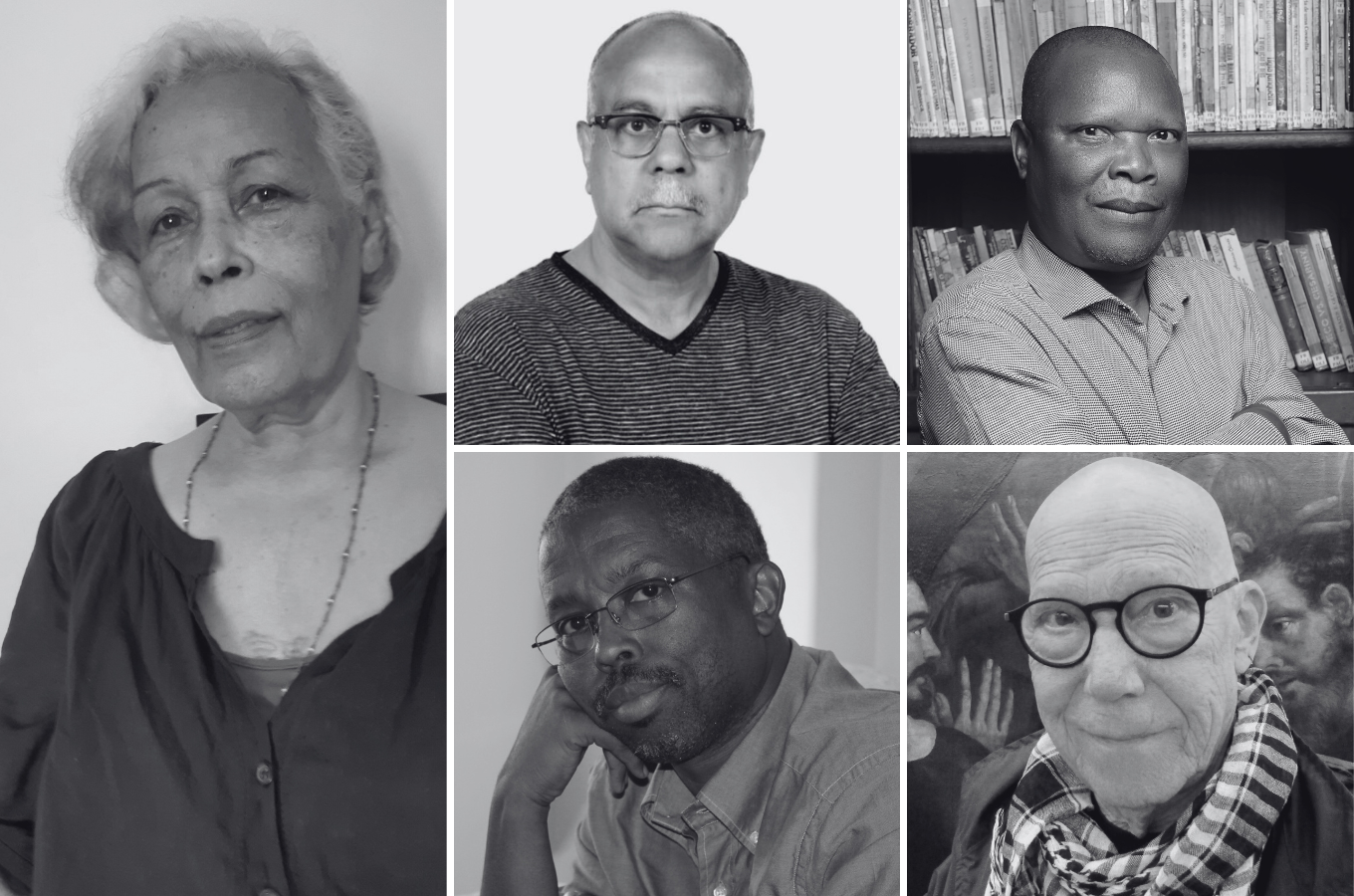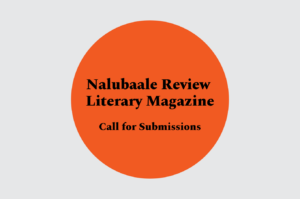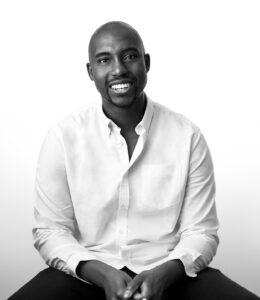
On the morning of the 25th April 1974 in Lisbon, a military coup overthrew the regime that had ruled Portugal since 1926. The coup was led by young army officers and their motivations were multiple, but the fact that Portugal had been fighting wars in Africa since 1961 was critical. The officers resented being forced, for political reasons, to fight wars they knew they couldn’t win and didn’t believe in. Many had even come to sympathize with the freedom fighters they were confronting in Angola, Mozambique, and Portuguese Guinea, and to identify with their Marxist philosophies.
Independence would follow for these countries, albeit not immediately: fighting continued in some places while a def acto ceasefire held in others. But by the end of 1975, Guinea-Bissau, Mozambique, Angola, Cape Verde, and São Tomé e Príncipe had all won their independence.
This year, Portugal celebrates the 50th anniversary of what became known as the Carnation Revolution. It is often referred to as a bloodless coup, though this overlooks the wars it sprang from (Colonial Wars or Wars of Independence, depending on whose history books you read). Indeed, some would say that by winning their Wars of Independence, the African liberation movements helped liberate Portugal too.
We asked a number of writers from Lusophone Africa to share their memories of 25th April 1974 and to reflect on the past 50 years.
***
Abdulai Sila – Guinea-Bissau
I was at school that day, at the Liceu in Bissau. We treated the news as another rumour, for people were always saying these things, out of wishful thinking and in defiance of the PIDE [International Police for the Defence of the State, the secret police]. But this time the rumours gradually grew in credibility.
I remember the only two classes that went ahead on the 25th April were taught by teachers whose husbands were officers in the Portuguese colonial army. The youngest confirmed to us that fascism was over, but the other tried to dampen our spirits by warning us that the picture still wasn’t clear in Lisbon. I remember her warning us, several times, of the need to control our emotions… But I also remember us leaving class early because there were people gathering in the yard outside who clearly weren’t controlling their emotions.
It was while watching this first, spontaneous rally that I realised something extraordinary was happening. Students were rushing out of classrooms to listen to people who were young like us, but not from our school, and who were saying incredible things. My first thought was that the PIDE must have closed because otherwise it would have been impossible to speak publicly about the PAIGC [African Party for the Independence of Guinea and Cape Verde] and repeatedly shout “Down with the Portuguese colonial-fascist regime” without showing the any sign of fear.
The next day a rally took place near the PIDE headquarters following the release of prisoners. For the first time in my life, I went to a rally voluntarily and it was quite wild and emotional. There was talk of independence, of the sacrifices that had been made and the benefits it would bring; of the economic, social and cultural development that the colonialists had denied us for centuries; of how we were going to build a great African Nation based on Unity and Struggle, where Freedom and Solidarity would reign…
The atmosphere took my breath away, but more than the magic of the words and the spectacle of the gestures, I was struck by the emotion the speakers conveyed, for these people were so clearly committed to freedom, social justice and the common good.
But because of the patriotism of those speeches, and the subsequent unpatriotic behaviour of some of the speakers, that rally marked a turning point for me. The 25th of April went from being a whirlpool of emotions to a source of endless lessons learned. Those lessons have shaped many of the choices I’ve made in life and the position I’ve taken at various critical moments in our history.
I try to remain optimistic and believe in a happy ending for this tragicomedy. After all, as the supposed “co-authors” of the 25th of April, we have the moral duty to learn the lessons of that day and truly give power to the people.
João Melo – Angola
I was in Coimbra, Portugal, having gone there to study Law the previous year, on a scholarship awarded by an Angolan bank. I lived in a house with other students, some African, some Portuguese, including a Mozambican lad whose parents lived in Lisbon. They phoned the house that morning to tell him that a “Revolution” was taking place in the capital. I remember the moment clearly: we were all sitting around the kitchen table having breakfast; we reacted as one.
Everything, or almost everything, changed. A few months later, I broke off my studies and went back to Angola to take part in the final phase of Angola’s move to independence. I started working as a journalist in March 1975 and formally joined the MPLA [People’s Movement for the Liberation of Angola], thus beginning my new career and political life, which continued until 2020. I never went back to law school.
Looking back, I’d do it all over again, but maybe do some things differently. In short, my country’s independence is an unquestionable accomplishment, but the direction the country has taken and the situation it finds itself in now, 50 years on, are dramatically frustrating. These are the things I try to reflect on and discuss now that I’m fully committed to writing.
Dina Salústio – Cape Verde
I was living in Luanda at the time. I’d left Cape Verde to study in Portugal, met an Angolan man and moved to Luanda after we got married. I worked as a teacher and as a social worker in the Casa do Engraxador (Shoeshine House), which provided support to orphaned boys aged 7 to 15.
For 48 years of dictatorship, freedom had played no part in our lives. Everything associated with freedom was forbidden or considered a crime, or a quasi-crime, and I saw how much this curtailed young people’s development and thinking.
The mood in Luanda in 1974 was tense. The situation had worsened on all fronts since the assassination of Amílcar Cabral [leader of the PAIGC, assassinated in 1973] and the socio-political and economic circumstances had been noticeably deteriorating. We also knew that there was discontent in the Portuguese military. In Angola there was a sense of waiting for something to give, which translated into a silence based on fear, essentially because of the PIDE.
On the morning of the 25th April my brother-in-law came to the house looking worried and speaking in a whisper, looking from side to side as if the walls had ears: “I heard on the radio” – he listened to the radio avidly and was a devotee of “Radio Moscow” – “that some Portuguese troops have revolted in Lisbon.”
There was no joy at first, if anything we were worried because we didn’t know what the aim of the coup was. I wouldn’t let him switch the radio on, I was so scared. But then my husband came home with concrete news: the military had overthrown the regime in Lisbon and people were celebrating in the streets.
For the rest of the day, and for many days after that, we all had tears in our eyes: there had been so much suffering, so many arrests, so many deaths, so much despair.
Besides freedom, that priceless first taste of freedom we got that day, the 25th of April is a source of inspiration, for it offers new hope that we can overcome new challenges, for new red carnations will always grow.
Carlos Paradona – Mozambique
I don’t like talking about the 25th of April. As a date it’s meaningless to Mozambique. Don’t forget that the war didn’t end in Mozambique until the 7th September 1974.
José Pinto da Sá – Mozambique
I remember it was a sunny day, very springlike for Brussels, and that my girlfriend’s hair was red with henna and still wet from the shower. We were in no hurry, for she worked afternoons and I worked in a bar at night.
On the corner of the Chaussée d’Ixelles we bumped into Topim, a skinny lad who’d been a cartoonist in Brazil but had ended up exiled in Belgium.
“Hey, man! Seen the news from Portugal?”
“What news?”
“There’s been a military coup, they’ve occupied Lisbon…”
“The right or left?”
“I don’t know, man, but I never trust the military.”
I translated for my girlfriend and told her it was probably a right-wing coup, a left-wing one had failed the previous month.
We went to the newsagent to buy cigarettes. The billboards outside said “Coup militaire au Portugal” and the front pages offered what little information they had.
“Let’s get a coffee at the Pantoufle,” I said. “Maybe the LUAR people will know something.”
The LUAR [League for the Unity of Revolutionary Action] was an armed anti-fascist movement with a long history of making bold attacks on the dictatorship in Portugal, including lucrative bank robberies. They’d opened the Pantoufle with their takings, in order to raise funds to perform further attacks.
The café was full of Portuguese refugees, the mood tense with anticipation. But by the end of the morning, amidst rumor and counter-rumor, it was finally established that the coup was left-wing coup and had been greeted euphorically by people in Lisbon. The Pantoufle became a scene of celebration, everyone hugging each other, many with tears in their eyes. Some had been refugees for years and years and now they could finally go home.
I’d been in exile for six years. I was born in Mozambique in 1948, into a colonial bourgeoisie family that had five servants, including a houseboy. For reasons I can’t quite explain, I rebelled from an early age. I was repeatedly suspended from school and eventually expelled for political reasons. I decided that no matter what, I would not serve in the colonial army.
By then, the liberation struggle led by FRELIMO [Front for the Liberation of Mozambique] was underway and I decided to join the movement. I persuaded my father to let me go and study in Portugal, from where I travelled to England. In London, I contacted the movement that represented FRELIMO in the UK and volunteered.
My offer was conveyed to the FRELIMO offices in Tanzania and I waited for a response. But FRELIMO was going through a period of turmoil, which culminated in the assassination of its founder and president, Eduardo Mondlane. All recruitment was suspended and my guerrilla career ended before it had even begun.
I stayed in London, collaborating with the FRELIMO support group. I organized their archive of newspaper cuttings and spoke at random events, spreading news of the struggle. But with no residency papers, the Home Office eventually kicked me out.
Belgium was nearby and I had friends from Mozambique there, so I went to join them. Belgium was one of few European countries that granted political asylum to refugees from the Portuguese colonial-fascist regime, and it was there that I formalized my request for asylum at the UNHCR [United Nations High Commission for Refugees].
Following the events of the 25th of April, I went back to Mozambique, arriving in late May amidst great political upheaval. The Portuguese, who commanded the senior positions in all areas of activity, were returning to Portugal in droves. I was invited to fill a position vacated by a “returnee” at a popular magazine that had lost almost its entire editorial staff.
I was committed to serving the new country and thought I could help by writing. I spent the next three decades working as a journalist, but the revolution soured, Samora died and Mozambique adopted a political model that had become all too prevalent in Africa. I became a translator, thanks to the English and French I’d learned in exile, which was poorly paid and unglamorous but finally gave me time to do what I’d always wanted to do: write short stories. My stories are deeply marked by my experience of exile and journalism, and they stubbornly cling to a belief in a fairer world.
If I walk through the hordes on Avenida Lenine in Maputo today, I cannot help but think about the distance between the hope of 1974 and the disillusionment of 2024. What have we done in half a century? In a country where almost half the population is illiterate and poverty wages make a book a luxury item, who is a Mozambican writer supposed to write for?










COMMENTS -
Reader Interactions